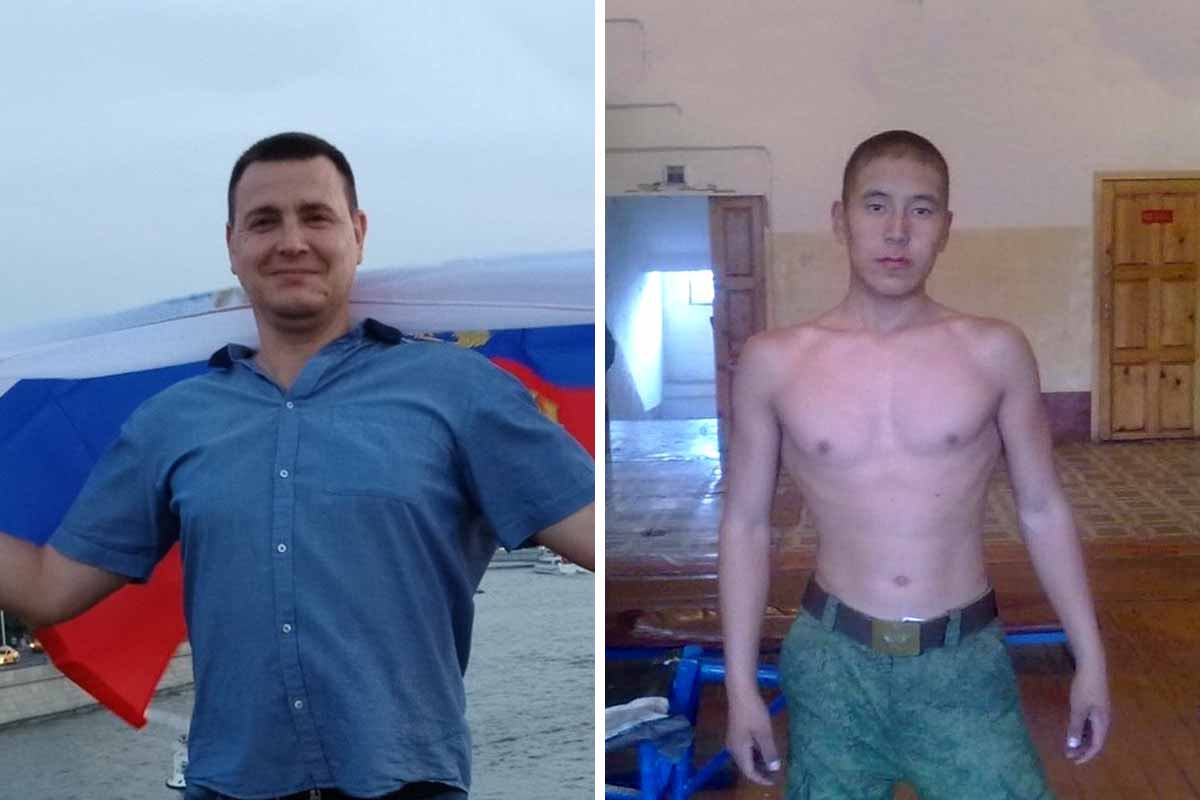Russian Soldiers Accused of War Crimes in Chernihiv
Servicemen allegedly poured solvent on a civilian and warned they would set him on fire.
A court in Ukraine’s north-eastern region of Chernihiv has summoned two Russian military personnel for the cruel treatment of civilians including threatening to burn a local bus driver alive.
Dmytro Makhovsky and Shyvyt Dongak, summoned in absentia, are accused of violating the laws and customs of war during the occupation of the village of Sloboda in the Chernihiv region. Makhovsky is also accused of giving the order for the cruel treatment to be carried out.
Makhovskyi, 46, is from the village of Kurshanovichi in the Bryansk region. He now lives in the city of Klimovo. Dongak Shivit, 29, is from the village of Torgalyg, in the southern Siberian republic of Tyva.
The Russian military entered the village of Sloboda, in Chernihiv region, in early March. Sloboda lies about 20 kilometres from the district’s regional centre, a strategic location which allowed Russian troops to shell the humanitarian corridor to Chernihiv city. Ukraine’s armed forces regained control of the village on March 30, breaking through the Russians' partial encirclement of Chernihiv from the north.
The case files indicate that on the afternoon of March 6, three armed Russian soldiers entered the farm of villager Mykola Yarosh, also the local school’s bus driver.
The Russian soldiers’ identities were not established during the pre-trial investigation. After an exchange with the man, the soldiers forced him at gunpoint into an infantry combat vehicle and took him to the village shop. This, according to the investigators, qualified as unlawful imprisonment.

According to prosecutors, at the shop Makhovsky, together with other unidentified Russians, used physical force on Yarosh, hitting him on the stomach, kidneys, hands and legs with the wooden handle of a shovel. Yarosh told investigators that he felt the beating lasted about half an hour.
The Russians wanted details about the potential hiding places of Ukrainian servicemen in the village, information that Yarosh did not give them.
Makhovskyi, whose rank is not indicated by the prosecutor’s office in the case documents, ordered subordinates including Dongak to continue beating the civilian.
Donghak then allegedly kicked Yarosh with his heavy combat boots in the area of his left kidney. He also delivered two blows to his right ear and the back of the head with the butt of a machine gun.
Makhovsky struck various parts of the victim's body with a metal chair leg and threatened to kill the man and physically assault his wife and his son.
Yarosh was taken outside the store and pushed onto his knees. Then, the case file state, Makhovskyipoured three bottles of white spirit, a flammable liquid, onto the victim and threatened to set him alight if he did not provide the information they wanted.
According to Ukrainian investigators, the Russian military violated the requirements of the Geneva Convention for the Protection of the Civilian Population in Time of War and the Additional Protocol to the Geneva Conventions of August 12, 1949, relating to the protection of victims of international armed conflicts of June 8, 1977.
Yarosh gave an interview to Slidstvo.info in which he explained that, before the occupation, he drove mobilised soldiers to the military commissariat. This meant that he had a list of Ukrainian military personnel, which for some reason he had left on the bus. On the day the Russians entered the village, they found the list and therefore took it away.
“I transported people, that's my job,” Yarosh told Slidstvo.info he had said to the soldier. The Russian replied, “Yes, father, you're a patriot, but I have to work you out.”
Yarosh stated that in the store he saw the dead bodies of two Russian soldiers and was told that it was his fault that they died.
He confirmed that the Russian had poured solvent on him.
“I was lying down when I was beaten, so he started pouring on my head and showing me. ‘Do you know what it is?’ I said, ‘I know.’”
He added that after being threatened with a lighter, he was locked in a shed.
Makhovskyi and Dongak are indicted under Part 1 of Art. 438 of the criminal code of Ukraine concerning the violation of laws and customs of war and face between eight to twelve years in prison.
The indictment was sent to the court in early October. The preparatory court session will be held in Chernihiv on December 27, with one judge scheduled to consider the case. Each Russian defendant was assigned a free lawyer by the Ukrainian Coordination Centre for Legal Aid Provision.
